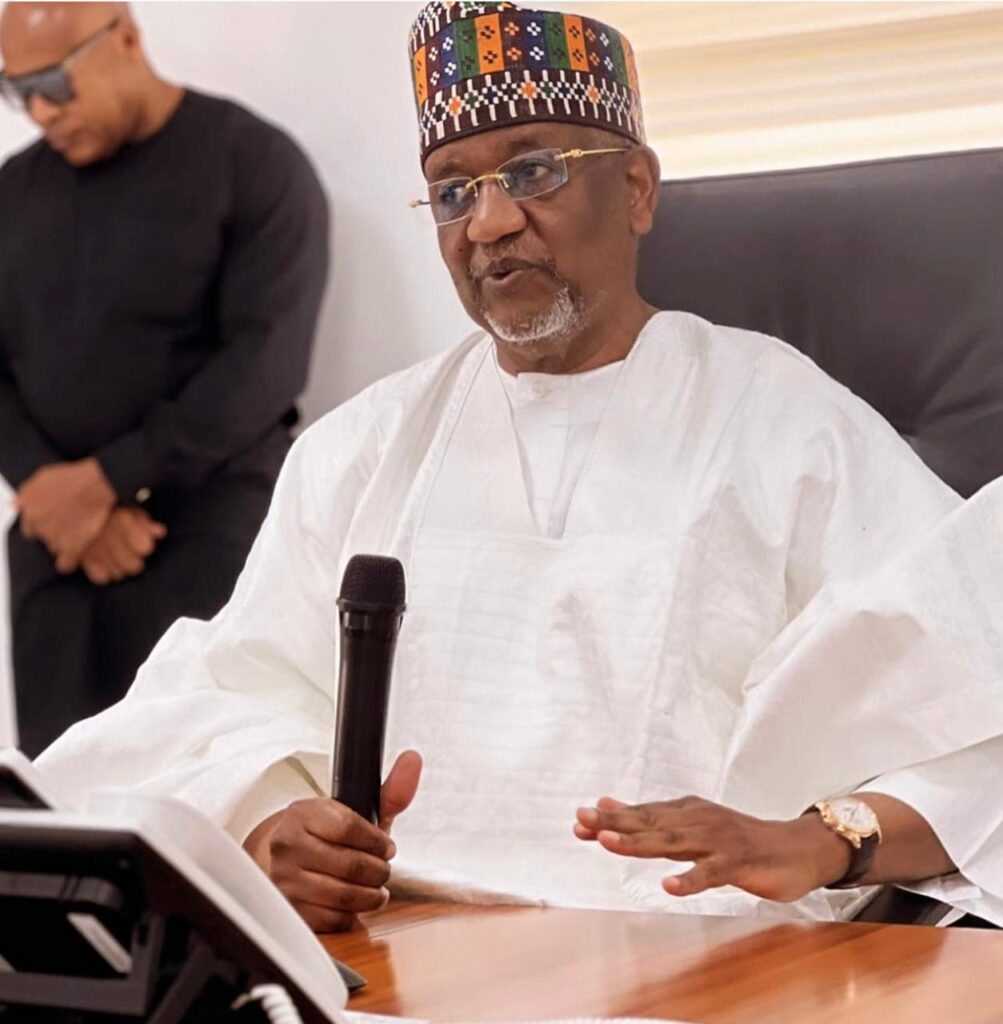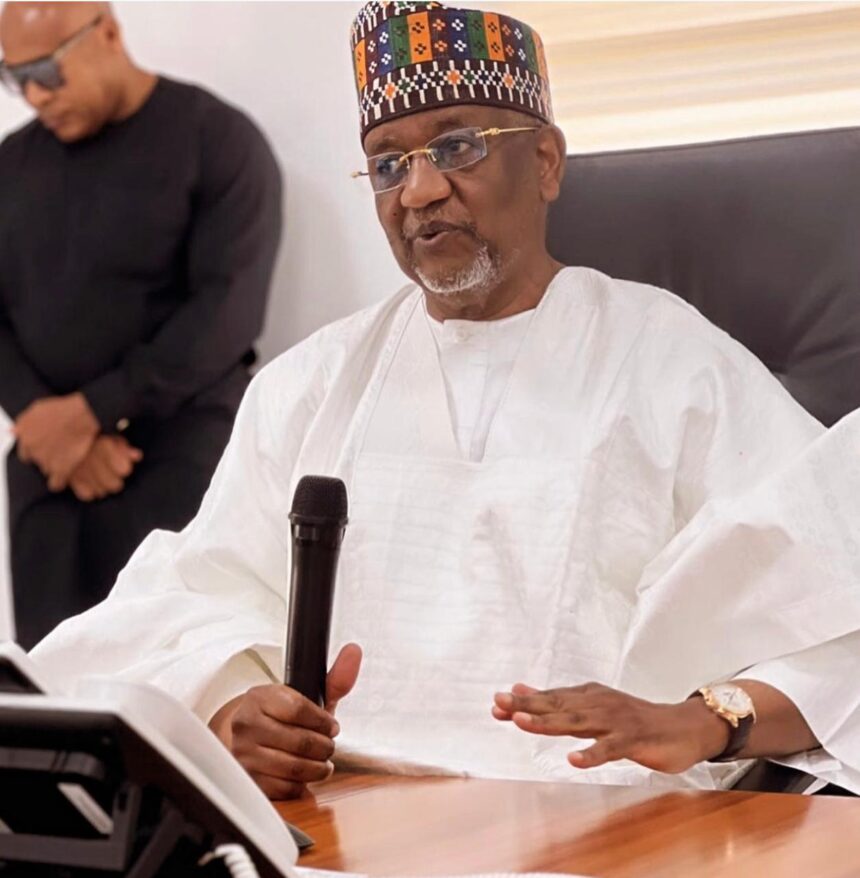 · A Patriarch’s Price: Can $10 Million Buy Back Trust Among Bloodline?
· A Patriarch’s Price: Can $10 Million Buy Back Trust Among Bloodline?
· How a Billionaire’s Legacy Becomes a Battlefield of Gold and Grit
There is an ailment that afflicts the wealthy, a silent tempest that gnaws at dynasties from within. It is not poverty, nor is it the privation that gnaws at the destitute. Rather, it is the affliction of plenty, the malady of affluence, a slow-burning feud that festers in the gilded corridors of privilege. The House of Indimi, a sprawling empire built on the subterranean wealth of crude, now teeters under the weight of familial discord. Muhammadu Indimi, the septuagenarian magnate of Oriental Energy, finds himself embroiled in a legal maelstrom, not with adversarial corporations or wily state actors, but with the very scions he birthed into privilege.
Last November, two daughters of the oil baron—Ameena Indimi Dalhatu and Zara Indimi—dragged their father’s empire to court, alleging an egregious denial of their fair share in the $435.1 million dividend declared in 2016. The allegations were not whispered in hushed tones at family gatherings but splashed across legal filings, where the daughters accused their father of intimidation and coercion, claiming he had muscled them into relinquishing their stakes in the company, consolidating his own to 99.94%. The case, now dissected in the chambers of justice, is a mirror into the fractures within the house Indimi built.
There is no gainsaying Muhammadu Indimi, a titan of industry and an architect of Nigeria’s crude oil prosperity, was forced into an unenviable corner. To quell the turbulence threatening to capsize his legacy, he reached for his weapon of choice—money. Ten million dollars, the price of peace, the silver bullet meant to cauterize a bleeding dynasty. But can money, even in its vastness, bridge the chasm between inheritance and entitlement?
Oriental Energy, in its response to the suit, made a startling revelation: the billionaire had paid off his children, awarding them a combined $10 million in exchange for their stakes, a move that, in the eyes of the company, stripped them of the right to claim further dividends. In the undercurrents of this transaction, a lesson emerged—money, though the elixir of capitalism, can also be its very curse. For Indimi’s progeny, what was once an empire inherited, is now an empire contested.
When Gold Becomes a Yoke
History is replete with tales of dynasties unraveling under the weight of their own abundance. The indulgences of wealth, when left unchecked, often breed entitlement, and entitlement, when untempered, births ruin. The Indimi children—heirs to an empire carved out of Nigeria’s oil-rich basins—are now embroiled in a conflict that threatens to unspool the narrative of their father’s enduring legacy.
One wonders: would they have fared better had they taken a cue from other scions of wealth, those who, despite being thrust into prosperity, have worn their inheritance with grace and gravitas? The children of Retired General T.Y. Danjuma stand as an emblem of measured stewardship, heirs who have neither trampled upon their father’s legacy nor stained it with scandal. Placed at the helm of their father’s conglomerates, they have wielded their inheritance with wisdom, preserving both wealth and reverence.
The Final Reckoning: A House Divided
As the courts decide on the fate of the Indimi fortune, the real trial unfolds not in legal chambers but in the court of legacy. The scars of this battle will outlive the verdict. For what is at stake is not just $43.5 million in dividends but the soul of a family that once stood as a symbol of affluence and aspiration.
Indimi’s children would do well to look beyond the dollar signs and see the broader picture—the inheritance of dignity, the preservation of a name unsullied by internecine squabbles. Money, for all its omnipotence, remains an inadequate adhesive for broken kinships. The true wealth of a dynasty lies not in its offshore accounts but in the honor that its name commands.
It is said that the true test of legacy is not the wealth amassed but the harmony it sustains. Indimi’s wealth has bought him many things: offshore oil fields, the attention of Nigeria’s power elite, and even an alliance with the Babangidas and Buharis. Yet, in the golden chambers of his home, money has failed him.
At the core of the Indimi discord lies a philosophical dilemma: is wealth a blessing or a burden? The patriarch had, in a moment of magnanimity, bequeathed shares of Oriental Energy to his children. But the largesse soon transformed into an albatross. When he sought to consolidate his holdings, the children—some coaxed, some convinced—relinquished their stakes, only to return years later with claims of disenfranchisement.
There is something deeply tragic about a man who has built an empire only to watch his own kin battle over its spoils. Muhammadu Indimi’s ordeal is not unique. From the Ambanis of India to the Gucci dynasty of Europe, wealth has proven to be a double-edged sword—an asset that, if poorly wielded, turns into a liability.
The children of Indimi may have erred in their perceived entitlement, but perhaps, at the heart of their grievance is a yearning for recognition beyond monetary compensation. In wealth, there is often an unspoken currency of validation, an inheritance not just of money but of meaning.
In the end, history will judge whether the Indimi clan was undone by its riches or whether it found a way to transcend the curse of plenty. For now, their name, once synonymous with opulence, stands at the precipice of scandal. And as the battle rages on, one cannot help but wonder: is this truly the price of fortune?



